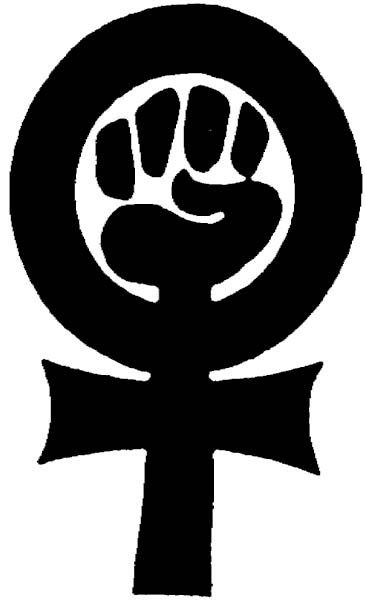Things are getting vocal. Times are exciting. And I am panicking.
As a life-long feminist I am thrilled to see topics like cultural consciousness, the male gaze and the definition of feminism itself coming to the fore. The Everyday Sexism Project. Bridget Christie's Mind the Gap. Sheryl Sandberg's Lean In. And these are just the tip of the iceberg.
However, just as all this noise is being made, and people are finally starting to listen, I find myself feeling uncharacteristically quiet and unsure of what to say.
When I was at school, I wrote a project on the Suffragettes. A few years later I took out a book from the school library all about feminism for young people. I was asked by my peers, 'So are you a feminist then?' My obvious, and immediate response was 'Yes.' Their obvious and immediate response was ridicule and teasing.
Speaking up, pointing out inequality and biased assumptions, and claiming the entirely legitimate, positive and helpful label of feminist has been a constant struggle from a young age. It shouldn't have been, and shouldn't be now: but we all know it still is.
Things got tougher still when I ended up writing about patriarchal femininity in popular culture for my Master's degree. It involved going back to the classics like The Second Sex and The Female Eunuch and discovering more modern theories like those of Judith Butler and Natasha Walter. By the time I graduated I couldn't help but see inequality and unquestioned cultural assumptions all around me. And I said so. Loudly. And often.
Speaking up, speaking plainly and speaking honestly is the only way to enact change. How can you fix something if most people don't even realise it is broken? And so I had many exhausting and sometimes rewarding experiences as I continued to live true to my faith in feminism.
Then life got in the way. I didn't stop caring or noticing or speaking, but other things happened that meant I could not spend days reading feminist theory or dissecting the gender-baises that are bred into men and women before they are even born. I got a job that I cared about. I had new things to read up on and explore and challenge. As it turned out many of these things crossed paths with feminism, and I loved that.
But despite that, my attention naturally became divided, and as I had less time to devote to keeping up to date, I suddenly became aware that my grip on feminism was slipping. Then a coupe of weeks ago I went to speak up, and realised I didn't have the right words. I couldn't quite articulate what I had been listening to, thinking about and engaging with for years.
That's when the panic set in.
It's ridiculous to think that a couple of months of reading books that happen to be on another topic and worrying about things that don't relate directly to gender equality should erase a lifetime's accumulation and absorption of thoughts, facts and frameworks. And in fact, during that time, I still found time to read some news articles and blogs about feminism. So why had I lost my footing?
To be honest, it's been freaking me out. I am still sure of the need to fight for gender equality. I am still sure that we are far from it right now. Beyond that I have only theories.
Some of it is insecurity. 'All these people speaking with such conviction and putting things so well - I could never say it that well.' 'Look at what she's already achieved, and she's younger than me'. A classic case of impostor syndrome.
Some of it is a fear that there is nowhere left to hide. 'If the struggle is starting to permeate all areas of life, where is the escape? Where can I catch a breath?' You might think that a terrible thing to say, but whilst the prominence of the gender debate might be reaching new heights, what's being debated is far from new.
To quote from the absolutely perfectly expressed article 'I don't want to be a feminist anymore',
Most of all, I am tired of knowing. Knowing that my eyes have been opened, and that what has been seen cannot be unseen. I am tired of knowing it, when I see something that is wrong. I am tired of knowing that only speaking out can change it. I am tired of knowing exactly how hard and scary it can be to do so.
Finally, some of it might just be this. I am a feminist. But I am a feminist amongst other things. I am a writer. I get excited about tech. I want to live in London. I have a real thing for good coffee. I love my red Denby cast iron cooking pot. I am working on a career. I recently enjoyed a book about zombies. I need new trainers.
Maybe this is part of the struggle itself. But all of a sudden 'I am a feminist' feels like an all or nothing assertion. People are trying to reclaim the word, which is great, but now it seems to come with a set of expectations about what you should be doing, how many marches you should attend and what your priorities should be. And if you don't meet them you don't get to call yourself a feminist. You become a failure at yet another type of idealised womanhood.
This is just speculation and riffing on an idea, but I think if we are not careful, 'feminist' could end up being just another way to pigeon-hole women into a neat and definable box, once again stripping away our ability to be individual, undefinable, ever-changing and (heaven forbid) just plain human.
I am a feminist who fights what she encounters while concentrating on other things. I am still a feminist.
